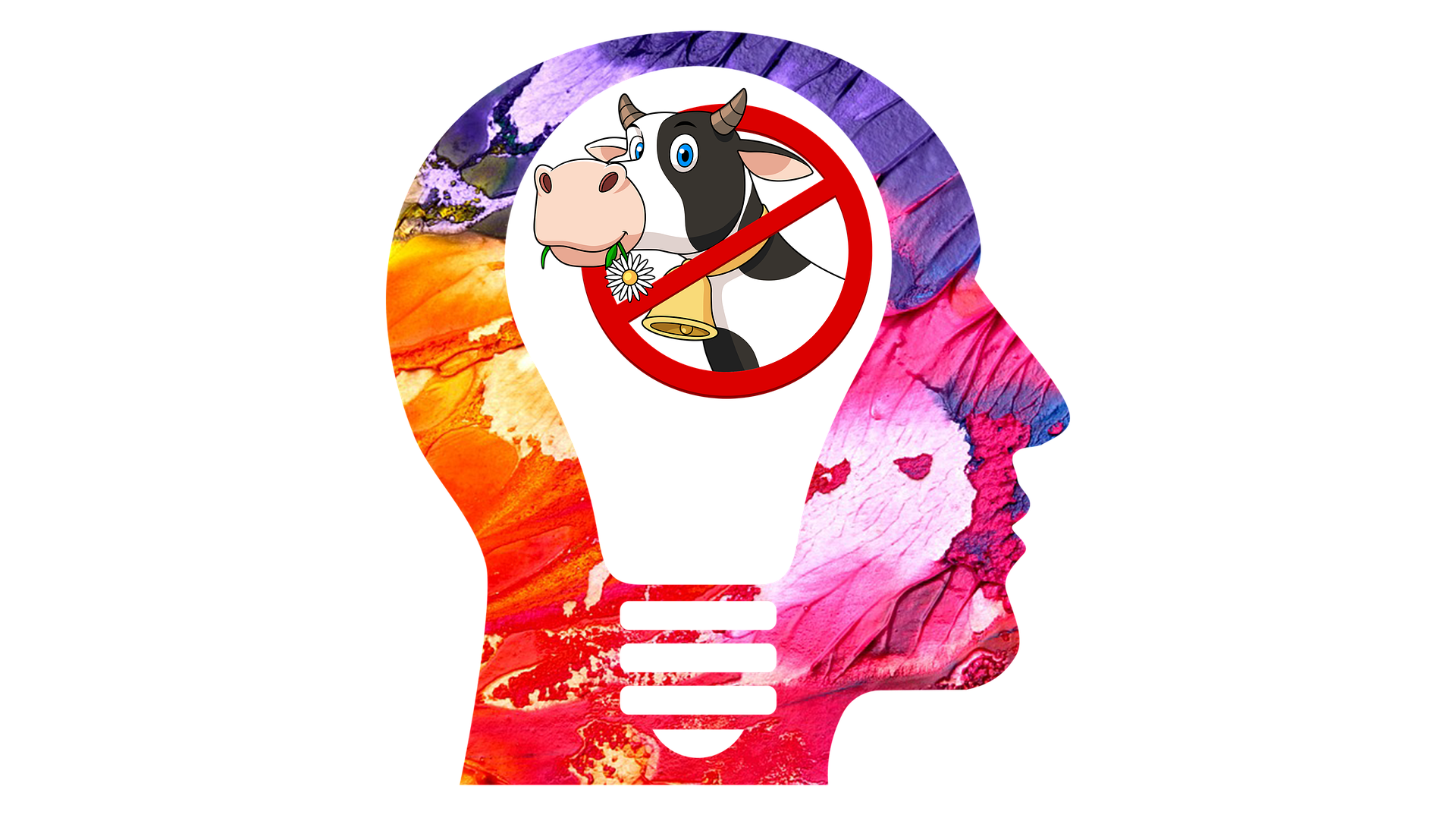Does A Plant-Based Diet Mean No Meat?
More and more people are considering going vegetarian or vegan or other various diets these days. Reducing the amount of animal products in your diet can have a variety of different motivations.
Reducing environmental impact, improving personal health, or concern for other living beings are all admiral goals. We also hear about Plant-Based diets as well more and more these days. But what is the different between a plant-based diet and a vegetarian or vegan diet. Does a Plant Based Diet mean no meat?
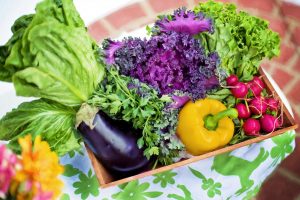
What is a vegetarian/vegan diet?
Let’s first explore what a vegetarian/vegan diet is. A vegetarian is someone who chooses to remove all meat consumption from their diet. It’s true ‘meat’ often has different degrees of definition by different people.
The strictest vegetarians would not eat any animal flesh, whether the animal was killed or suffered in anyway. Others might eat certain types of shellfish and other small organisms. A vegan, on the other hand, is someone who removes all animal products from their life completely.
This includes no dairy products, no honey ( bees), no leather (animal skin). In the past sometimes vegans would not even view movies in the movie theatre. This is because the film used gelatin, which is often made from ground up animal bones.
What is a plant-based diet?
A plant-based diet focuses on plants being the core of your diet, and promotion of plant based foods. Vegetarian and vegan diets focus on restriction. This can make it hard for people trying to change their diets.
A plant-based diet is instead a celebration of the options available from plant based foods. This means a plant based diet can be more forgiving and understanding of circumstances. Generally speaking, only eat plant based foods where you are in control of what you are cooking and eating.
You can be flexible in other situations though. A last minute invite to dinner at in-laws, company meetings, etc. The goal is still to focus on plant-based dishes and then choose small amounts of animal products only as necessary. But again, plants should generally be all of what you are consuming.
This can seem like word play for well meaning people who want to ‘cheat’ and eat meat. The reality is that it is focused on promoting healthy diet and healthy living. A vegan can live on potato chips vegan cookies, but a plant-based diet is about using whole foods.
So does a plant based diet mean I can’t eat meat?
A plant-based diet generally means your calories are coming from plants and not from meat. It doesn’t mean, however, that you are vegetarian or vegan. Instead, you can be flexible in social situations when you aren’t in control of what you are eating.
This includes not only fruits and vegetables, but also nuts, seeds, oils, whole grains, legumes, and beans. A plant based diet understands if you are at a party or an event and you have other priorities.
A plant-based diet will mean eating lots of vegetables. It will mean new introductions to food. Probably in a way that you may not have known before. Often vegetables are poorly prepared so that people don’t like them.
Vegetarians often learn how to cook vegetables in much more tasty ways. For example, maybe you had a steak with some boiled (and tasteless) brussels sprouts or beets. So you learn how to half cut brussels sprouts roasted in a pan and you realize how tasty they are.
Plant-based diet encourages eating vegetables as a main focus of the diet. Not just an afterthought on a plate with a steak that doesn’t taste good. It could also mean eating fruit for dessert instead of typical baked good or dairy product!
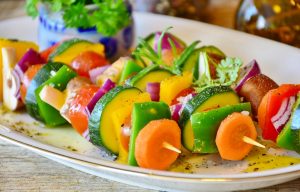
Why should I go plant-based?
There are many reports to show the health benefits of a plant-based diet. A study from the University of Warwick in the UK showed that a most plant-based diets reduced blood pressure. The most effective was a diet of fruits, vegetables, whole grains, nuts and seeds, and low-fat dairy products.
This also limited sweets, saturated fat and sodium. This is known as the Dietary Approaches to Stop Hypertension diet or DASH diet. The researchers conducting the study say that these results could lead to a 14% reduction in stroke risk.
It also showed a 9% reduction in heart attack risk. Additionally it had a 7% reduction in overall mortality for all types of plant based diets. Clearly a plant based diet with plants at their focus will likely keep you in better health.
Maybe you also want to reduce your impact on the environment as well. According to a 2018 study one quarter of global carbon dioxide emissions come from food. Of this, 52% of food carbon emissions come from animal products.
Half of all farmed emissions come from beef and lamb alone. This is where it’s important to remember that plant-based diet doesn’t mean not eating meat! Cutting out the highest foods emitting the most carbon emissions will make contributions to reducing the food industry foot print.
Maybe you want to reduce the amount of animal suffering. A plant-based diet can be a contribution to that as well. According to Humane Society International, more than 80 billion land animals are raised each year for consumption.
Lots of lives lost raised in poor conditions, and as global human population increases there will likely be more. A small change reduction in meat consumption by millions of people can reduce animals raised for our consumption every year.
So what should I eat then?
A plant-based diet shifts in your thinking of meat as the center of the dish to vegetables. There are variety of ways of thinking of this shift. Do you want the plants to simulate something you eat as meat in the real world?
Or do you want to have a truly plant based meal that celebrates the qualities of those foods? Below we will give you a recipes that either substitute meat or focus on the plant-based qualities of foods.
3 Great Plant-Based Recipes
Pea-based Meat Sauce
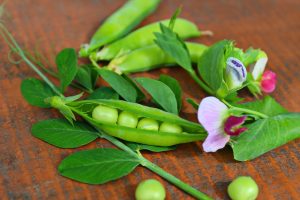
This sauce can be adjusted as you like. Serve it as a sauce for pasta. You can add some finely chopped carrots, onions, and celery to make a nice Bolognese sauce. You can cook it thicker to make something similar to sloppy joes! The pea-based meat will absorb some liquid which makes it perfect for this. And all with no meat.
1 pack of Naturli Pea-based mince
2 cloves of garlic
1 tablespoon of plant-based oil (olive, coconut, etc)
500ml of crushed tomatoes
Basil and Cayenne to taste
Put some of your plant-based oil in a pan and add the garlic when it is hot. When the garlic is slightly brown, add the Naturli Pea based mince to your pan and cook for 10-15 minutes. It will not brown in the same way that regular meat does so don’t cook it that way.
Once the mince is broken up and cooked thoroughly, add your tomatoes. Simmer until evenly cooked. Serve over pasta or simmer longer until it is thick enough to eat on buns like sloppy joes.
Tom Yum Flavored Tofu with 3 colored peppers
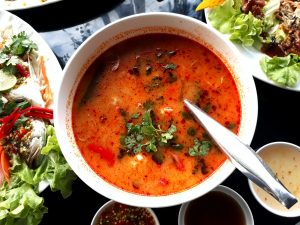
Tom yum paste often has some non plant based items in it (particularly fish sauce). This is a nice example of plant based eating that doesn’t punish you for focusing on the tofu flavour. A unique twist on tom yum, which is generally a soup. It will add that nice spicy sour taste to your tofu.
1 tbsp plant-based oil
2 cloves of garlic
1 tbsp minced ginger
2 tablespoons of tom yum paste
1 square of tofu, cubed
One each- red, yellow, and orange peppers
1 tsp of corn starch mixed with water
Add your oil to the pan and stir fry your garlic and ginger until the garlic is brown. Add your cubed tofu. Cut the bottoms and tops off of the peppers, removing the core. Use only the tops and bottoms and put the large center pieces of the peppers to store.
Cut up the bottoms and tops and place into pan. Add the tom yum paste and then the corn starch mixture. Stir until the sauce is thick enough to cover the back of a spoon. Enjoy on its own or with short grain white rice.
Julienned Carrot and Beet Salad
Not all plant based foods have to be salads. This one is so tasty those definitions will go out the window once you can’t stop eating it. With a food mandolin to make this you can make this salad in seconds!
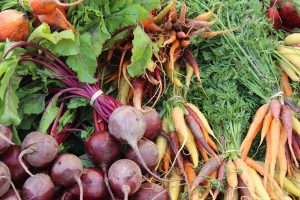
Try using other vegetables like zucchini, cucumbers, and other like vegetables to add variety to your salads. You can use other dressings, but this one is always a hit if you can find the ingredients.
1 carrot
1 beet
Ponzu sauce
Sesame dressing
Black pepper to taste
Slice the carrot and beet separately on the mandolin. Be careful that the beets do not stain the carrots or else everything will just be red. Place each sliced vegetable in a strainer in turn and let soak in water for one minute. For the beets, soak until they no longer die everything a strong red.
In a bowl place add about one cup of julienned beets and carrots each per person. Add teaspoon of ponzu sauce with one teaspoon of sesame dressing and mix until the vegetables are coated. Season to taste, but do not use too much as it will over power the taste of the vegetables. Top with cracked pepper and serve.
More focus on veggies
So now we know, a plant-based diet does generally mean no meat. The focus is on shifting the center of the meal from meat to vegetables. Generally you are eating plant based foods all the time. But you can resort to some meat when there aren’t other options.
We know all the great benefits from having a plant based diet. From less environmental impact to improved health to reducing the amount animals raised for consumption. And we have some nice new recipes to try out as well. Power to the plants!

